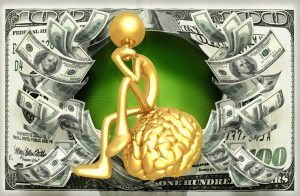Your Brain Likes Shortcuts, and That’s a Problem
Posted onIn recent years, articles and videos promising “life hacks” have become popular. These tips and tricks are shortcuts for navigating life’s petty challenges and problems. We like these life hacks because our brain is wired to look for quick and easy solutions. We do so to conserve energy and cognition. At first glance it appears these shortcuts are a benefit which allow us to move fast and avoid overthinking. However, there is one problem:

These shortcuts unfold without our knowledge.
Behavioral economics has brought attention to these hidden influences. This branch of economics shows us how these approaches to problem solving, sometimes called “heuristics,” can undermine our goals. One prominent Duke University professor who has studied these heuristics and biases is Dan Ariely. In his experiments he has learned about a peculiar characteristic of human psychology, the “price placebo.”
The placebo effect is the phenomenon of taking a medication which, unknown to the patient, is artificial. Believing that the medication is in fact real, the patient feels better without having undergone any real medical treatment. Ariely’s insight was that this trickery also works with prices.
In his experiment, participants subjected themselves to small electrical shocks. Each delivered a painful sensation. Later, Ariely offered the participants a pain killer. If the subject wanted it, they would have to pay. Ariely’s price was $2.50. Nearly all who paid for the painkiller – nothing more than vitamin C – reported feeling better. At this point, all of the findings were predictable, after all, the placebo effect is a well-known phenomenon. Things changed, however, when Ariely altered the price.
Ariely started charging just $0.10 for the false painkiller. This time participants were much less receptive to the medication and remarked that is was ineffective. People really do believe that they get what they pay.
This finding has implications for equity investors today who are willing to pay much more than they have in the past. Perhaps the high stock prices of today have given way to a price placebo in which investors believe expensive stocks offer far more potential.
For example, since 2013, stock prices, as measured by their P/E ratios, have been in the highest quintile. This means that for five years stocks have been at the highest end of the “pricey” scale. Ariely’s research suggests that an expensive stock market has vaulted expectation to unrealistic levels. As Wall Street Journal columnist Jason Zweig recently explained, “Markets tend to lose their dominance right around the time it seems most irresistible.”
During this period of great expectations, gold has sat largely ignored. As more investors continue to flock to the stock market, gold has receded to much more affordable prices. These lower costs make it easier for incoming gold investors to realize a long-term profit because the cost doesn’t “price in” extraordinary expectations.
As Ariely explains, “Our irrational behaviors are neither random nor senseless- they are systematic and predictable. We all make the same types of mistakes over and over, because of the basic wiring of our brains.”







